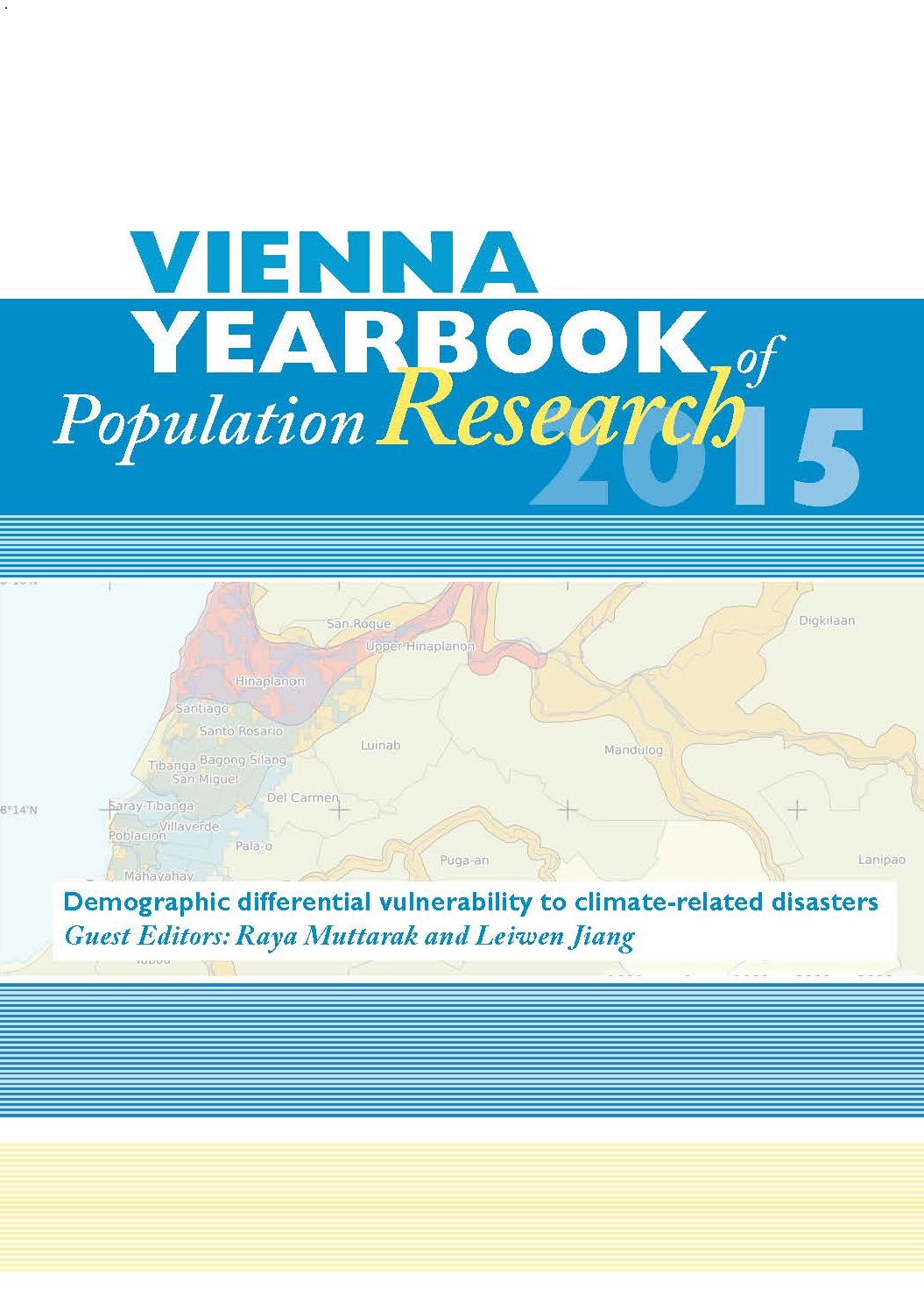
Vienna Yearbook of Population Research 2015, pp. 263-287, 2024/12/12
Special issue on Demographic differential vulnerability to climate-related disasters

In this paper we describe an innovative aspect of the population module in the context of an ongoing comprehensive modelling effort to assess future populationenvironment interactions through specific case studies. A particular focus of our study is the vulnerability of coastal populations to environmental factors and their future adaptive capacity. Based on the four-dimensional cross-classification of populations by age, sex, level of education, and labour force participation, our approach builds on a recent body of research that has critically assessed the role of demographic differentials as determinants of differential vulnerability and adaptive capacity. We use Phang Nga, a province in the south of Thailand that was severely affected by the tsunami in 2004, to describe current levels of educational attainment and investigate past trends, which in turn serve as input for detailed education projections. These education projections, in combination with projections of economic activity and household survey results about disaster preparedness, feed into further analysis of future adaptive capacity. Given our specifications and assumptions, we find that the educational composition of the province’s labour force will shift towards higher levels, and that the population of Phang Nga will be better prepared for future disasters.
Keywords: Demography; Environment; Climate Change; Thailand